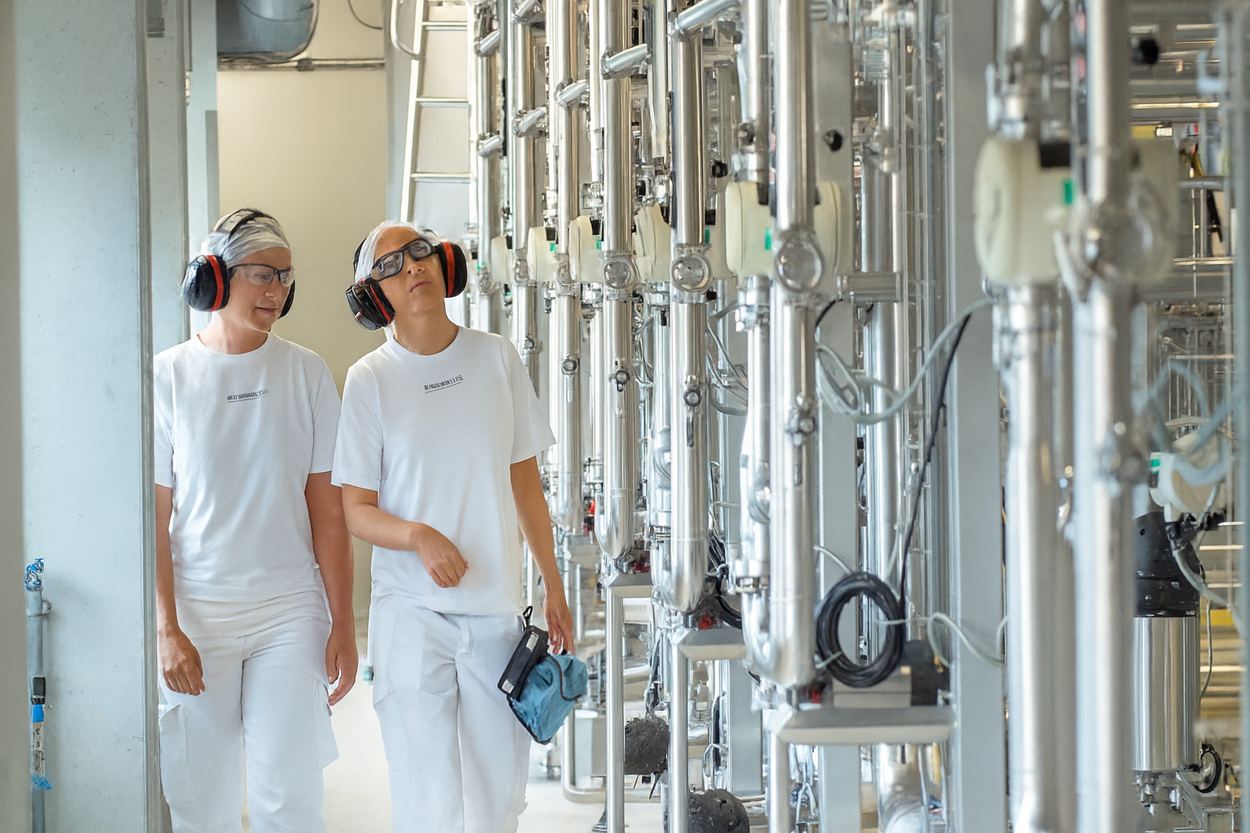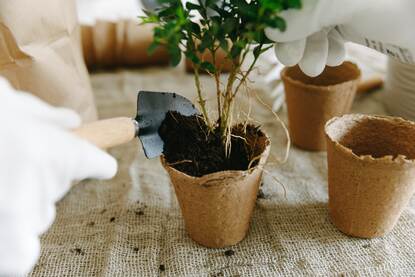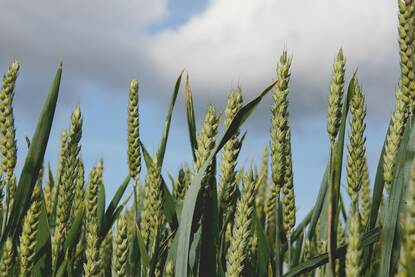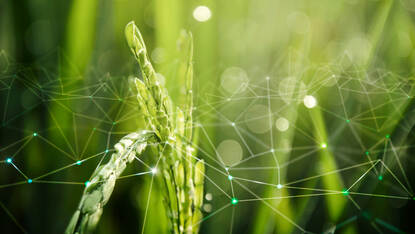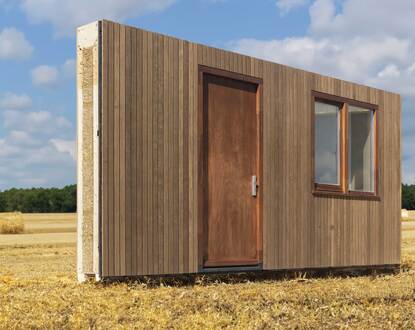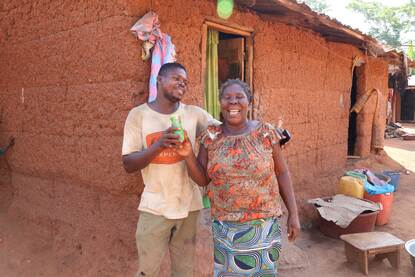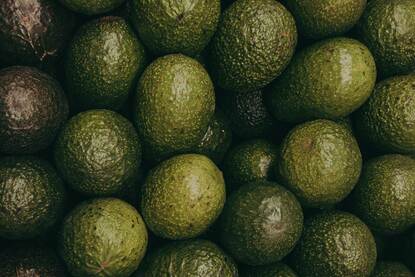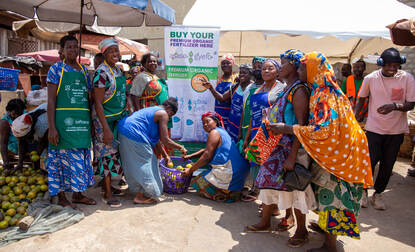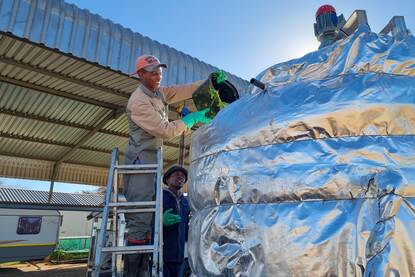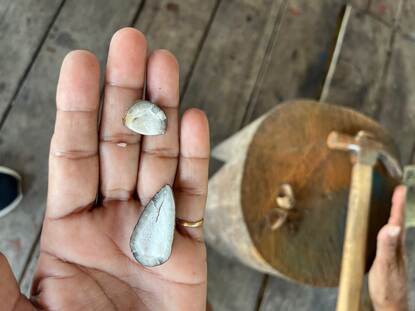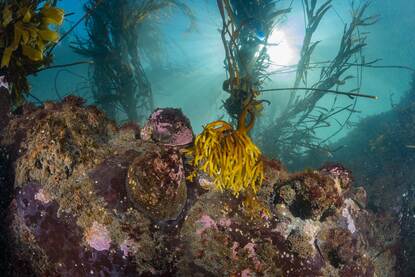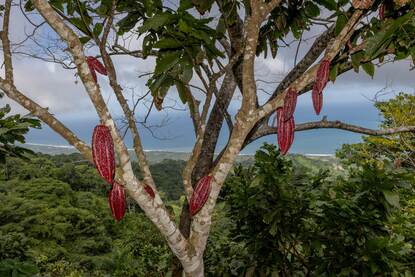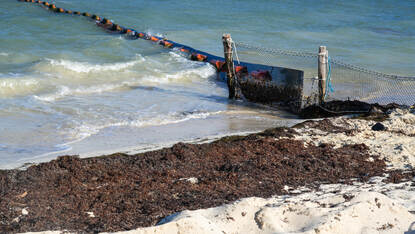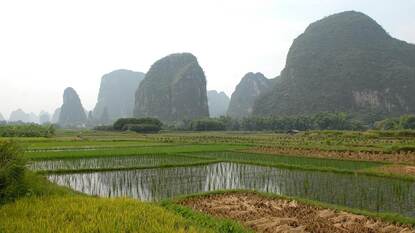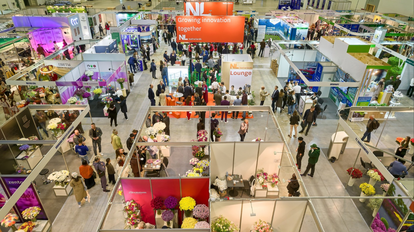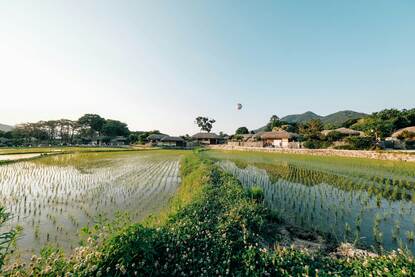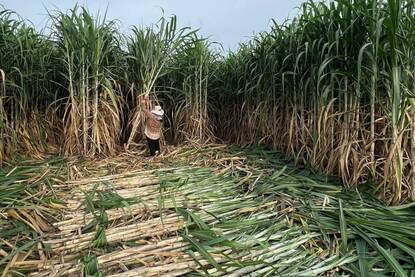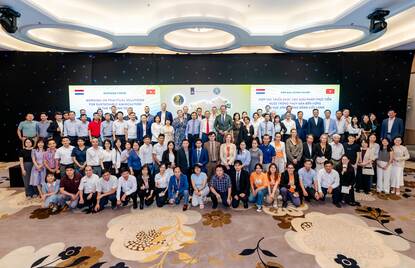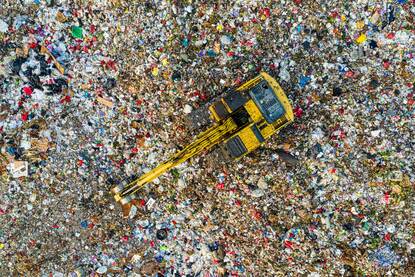Foto Masterscience Biosolutions Denmark. Source: Naturvidenskab
Denmark has made biosolutions a centerpiece of its EU presidency in 2025, seeing them as both a climate solution and a new export adventure. The Netherlands is already engaging in this agenda: in May 2025, the Netherlands Agricultural Network (LAN) team at the Dutch Embassy in Copenhagen visited Novonesis together with Dutch parliamentarians, underlining the shared interest in Danish leadership and European opportunities for scaling up the bioeconomy.
Biosolutions are climate-friendly biotechnological applications based on natural processes. Examples include fungi for crop protection, enzymes that improve soil quality, and bacteria as biofertilizers. They can also help reduce food waste and provide sustainable protein sources. In short, biosolutions offer biological alternatives to chemical or fossil-based processes, accelerating the transition to a more sustainable and circular economy.
Since taking over the EU presidency in July 2025, Denmark has turned biosolutions into a central theme. But even before this, Denmark already identified biosolutions as a sector where it wants to lead globally.
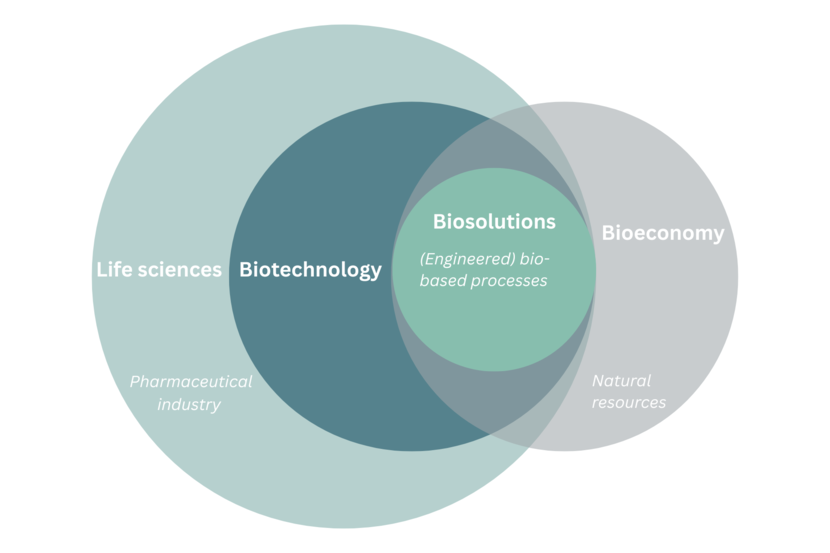
What’s new?
Biosolutions themselves are not new. Products such as beer, cheese, and sauerkraut all rely on fermentation. What is new is the way these natural processes are being developed and applied as modern, innovative solutions to today’s sustainability challenges.
In Denmark, the concept of biosolutions is embraced broadly. With strong financial government support, and by working with the sector in public-private partnerships for export promotion, industry activity, and coordinated communication, biosolutions are presented as a cornerstone of the bioeconomy and as a potential new export adventure, comparable to the rise of wind energy in previous decades.
‘Biosolutions are a cornerstone of the bioeconomy and a potential new export adventure’
Landscape and potential
Denmark invests heavily in biosolutions through policy initiatives, infrastructure, education, and public-private cooperation. The aim is to speed up the global sustainability transition and secure a leading position in the international bioeconomy. In June 2025, the Danish government launched a new initiative called the Growth Team for the Future of Agri-Food and Biosolutions, focusing on export promotion, talent development, regulation, and scaling up green technologies.
The sector is already significant. A report by the consultancy company Copenhagen Economics, for example, even includes dairy giant Arla as part of the biosolutions ecosystem. Today, around 6,800 people work in this field, half of them in agriculture and food.
In 2020, the sector contributed over €1.8 billion to Denmark’s gross domestic product (GDP), with most revenue coming from exports. According to The Value of Biosolutions: Growth and Prosperity to 2035, a report commissioned by the flagship of Danish biotech solutions Novonesis, industry output was €5.3 billion in 2024, employing 6,500 persons directly. By 2035, this is expected to double to €10.7 billion and 13,000 direct jobs.
Education is also evolving. In 2024, the University of Copenhagen launched a Master of Science in Biosolutions, training students in areas such as green proteins, fermentation, crop protection, and biobased materials.
Dutch interest and European opportunities
In May 2025, the Netherlands Agricultural Network (LAN) team at the Dutch Embassy in Copenhagen visited Novonesis together with Dutch parliament members. The visit underlined the sector’s potential, but also the need to modernize regulations that currently slow down progress.
Dutch industry is already engaged. The largest employers' organization in the Netherlands VNO-NCW is part of the European Biosolutions Coalition, founded in 2023 with support from the Novo Nordisk Foundation. The coalition brings together leading industry organizations to improve the conditions for biosolutions across Europe.
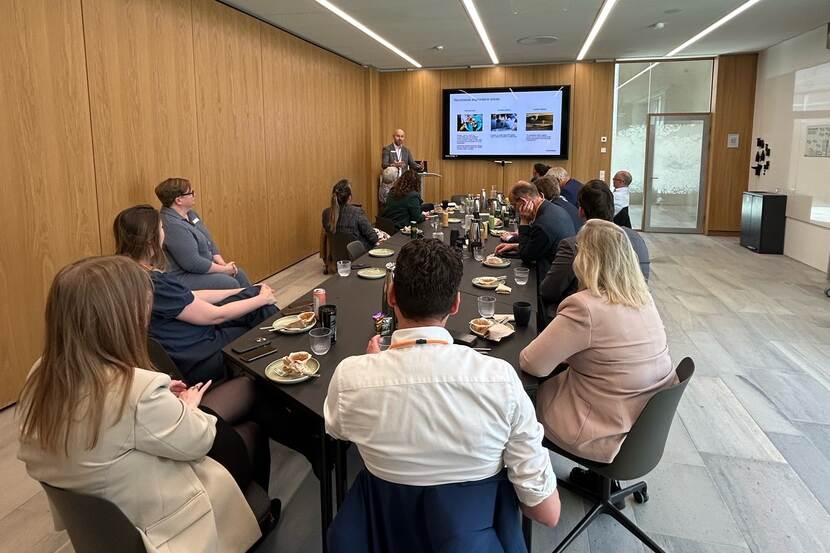
Danish EU presidency
During its EU presidency, Denmark highlights the bioeconomy with specific activities and focus on biosolutions during the informal ministerial meetings. The European Commission will review the 2018 EU Bioeconomy Strategy later this year, aiming to strengthen sustainable and circular production of biological resources. Denmark wants the new strategy to accelerate innovation rather than slow it down through outdated legislation. This was also the main message during the informal meeting of the EU-agricultural ministers that took place early September, where a delegation from the Dutch Ministry of Agriculture, Fisheries, Food Security and Nature and LAN team were present.
The Danish Ministry of Green Transition advocates for scaling up bio-based innovations and strengthening market demand. It calls for earmarked funding within the Common Agricultural Policy, an EU action plan on plant-based foods, new regulatory guidelines, and faster approval for new technologies. The overarching goal is to promote bioeconomy while avoiding unsustainable biomass pathways.
Meat substitutes start-ups to watch
A frequently cited Danish start-up is Matr, now entering its scaling phase. Matr produces meat substitutes from local Northern European ingredients such as beets, potatoes, beans, and oats, transformed into mince or burgers using fungi fermentation. With a clean-label approach, no egg binders or additives, and a carbon footprint more than 90% lower than beef, Matr offers an appealing, Nordic alternative to competitors like Quorn. The European Investment Bank recently backed Matr with €20 million in venture debt to finance its first industrial-scale facility. Matr’s use of local ingredients and ultra-low carbon profile gives their products a distinctive edge, combining Scandinavian simplicity with sustainability.
Broader Scandinavian bioeconomy
Agriculture, fisheries, and food production in Scandinavia are already rooted in biological resources, but current developments increasingly integrate circularity and precision by making smart use of data. Swedish food self-reliance enhancing policies emphasize reusing side streams. New ag-tech missions highlight resource-saving precision farming. In fisheries, full documentation policies prevent overuse and ensure precision fishing, which is regarded as an important pillar in for instance Norwegian fisheries policy.
Geopolitical developments also underscore the urgency of strengthening the bioeconomy: reducing dependence on external inputs means doing more with less.
Looking at the high-level summit and the future
Bioeconomy aims to use renewable biological resources from land and sea to produce food, materials, and energy. It is already everywhere, but its importance will grow. Denmark showcased this vision at the official EU presidency event, the ‘High-Level Summit on Biosolutions’ on 10 September 2025, which was organized as a key moment for Europe to set its course in this rapidly growing field. The panels and speeches expressed the great potential of Europe’s Biosector and the necessity to rethink EU regulations on biosolutions, to foster growth and secure Europe’s competitiveness.
An impressive delegation from the Netherlands took part in the Summit, including the Ministry of Economic Affairs, the Ministry of Agriculture, Fisheries, Food Security and Nature, VNO-NCW, HollandBio and the province of Brabant. The LAN team in Copenhagen was also present and played a role in connecting the information needs of the Dutch delegation with the Danish network. The team will increase its efforts on this topic this coming year; therefore, it was a good opportunity to expand their network and knowledge on the topic.
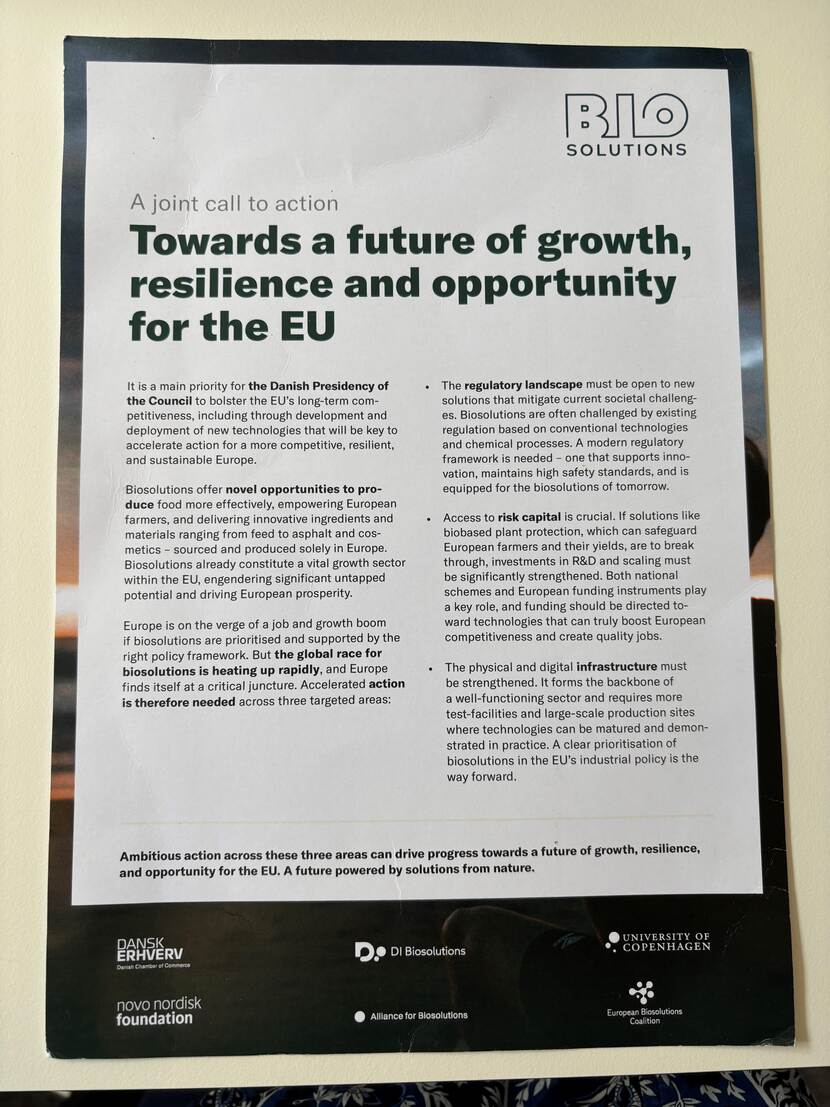
More information
Would you like to know more about Denmark’s biosolutions agenda? You can visit the country page of Scandinavia at the website Agroberichtenbuitenland.nl of the Dutch Ministry of Agriculture, Fisheries, Food Security and Nature. You can also send an email to the LAN team at the Dutch Embassy in Copenhagen: kop-lvvn@minbuza.nl.
